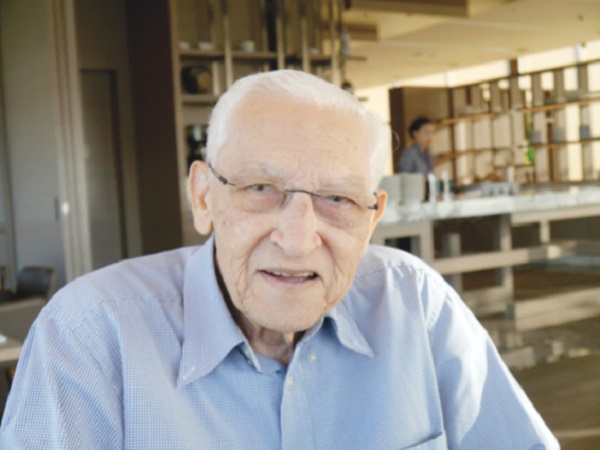Malaysia yet to ratify anti- nuke weapons treaty
Published on: Sunday, December 16, 2018

Kota Kinabalu: Malaysia signed the UN Treaty on the Prohibition of Nuclear Weapons on Sept 20, 2017 but has yet to ratify it.As a "200 per cent Malaysian born in Seremban", Datuk Dr Ronald McCoy hopes that the new government will ratify it next year.McCoy was a former head of the Malaysia Medical Association and former co-president of the International Physicians for the Prevention of Nuclear War (IPPNW) founding the International Campaign to Abolish Nuclear Weapons or ICAN.ADVERTISEMENT
A decade after ICAN was launched, the campaign became the recipient of the 2017 Nobel Peace Prize.McCoy said he got the idea for the campaign from International Campaign to Ban Landmines, which later led to the Ottawa Landmine Treaty in 1997.He deemed that since Hiroshima and Nagasaki, nuclear weapons are the most inhumane and indiscriminate weapons of mass destruction ever to threaten human and planetary survival and to violate international humanitarian law."The dropping of the atomic bombs by the Americans on Hiroshima and Nagasaki to me constituted a war crime," McCoy stressed.ADVERTISEMENT
He said the possession of nuclear weapons stimulates proliferation, that the ongoing modernisation of nuclear weapons makes a mockery of national and global security and should be eliminated.The abolition of nuclear weapons is an urgent humanitarian necessity. Any use of nuclear weapons would have catastrophic consequences.
ADVERTISEMENT
No effective humanitarian response would be possible, and the effects of radiation on human beings would cause suffering and death many years after the initial explosion. Prohibiting and completely eliminating nuclear weapons is the only guarantee against their use, he stressed."It would be naive to think that, as long as nuclear weapons exist, they would not be detonated by accident, miscalculation or intent. Not only will deterrence one day fail, but the risk of nuclear terrorism continues to grow."Nuclear weapons pose a direct and constant threat to people everywhere. Far from keeping the peace, they breed fear and mistrust among nations. These ultimate instruments of terror and mass destruction have no legitimate military or strategic utility, and are useless in addressing any of today's real security threats, such as terrorism, climate change, extreme poverty, overpopulation and disease.Climate change may be the global policy issue that has captured most attention in the last decade, but the problem of nuclear weapons is at least its equal in terms of gravity – and much more immediate in its potential impact.Nuclear weapons programmes divert public funds from health care, education, disaster relief and other vital services.Stay up-to-date by following Daily Express’s Telegram channel.
Daily Express Malaysia




